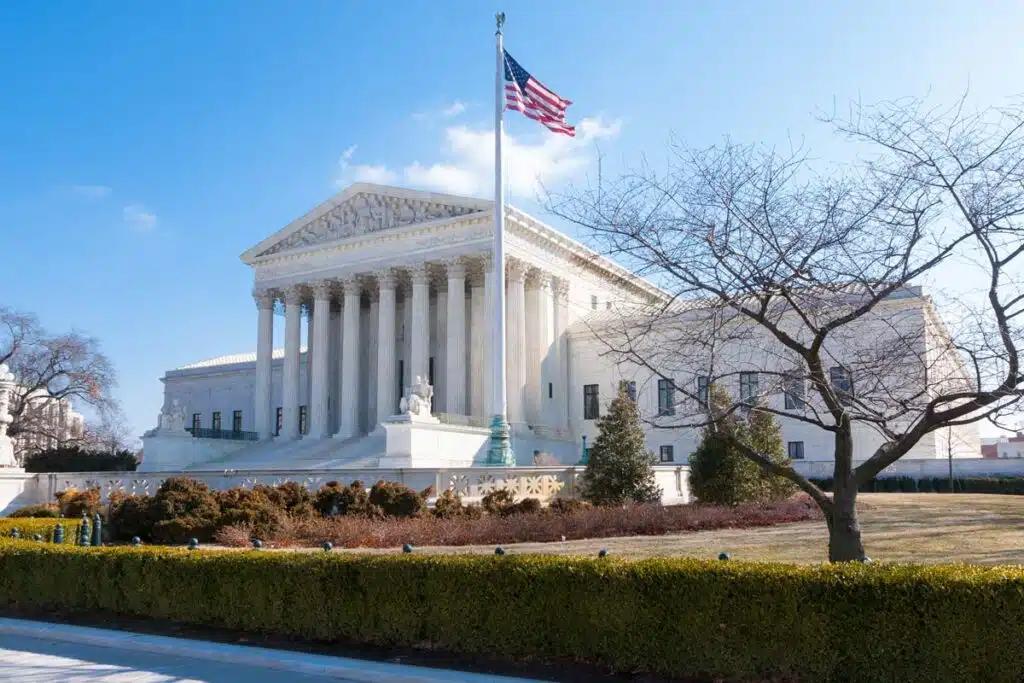
Supreme Court statute of limitations ruling overview:
- Who: The U.S. Supreme Court ruled consumers can challenge federal regulations outside of the normal six-year statute of limitations for complaints brought under the Administrative Procedures Act.
- Why: The 6-3 conservative majority determined a claim does not begin to accrue time until a plaintiff “has the right to assert it in court.”
- Where: The decision was made in the U.S. Supreme Court.
The U.S. Supreme Court ruled this week that consumers can challenge federal regulations outside of the normal six-year statute of limitations window in the event someone is not adversely affected until after that time.
The 6-3 conservative majority extended the six-year deadline for lawsuits brought under the Administrative Procedures Act (APA).
Justice Amy Coney Barrett wrote for the majority that the court had to decide when the time limit allowed for a claim brought under the APA begins to accrue and that, ultimately, the answer was “straightforward.”
“A claim accrues when the plaintiff has the right to assert it in court — and in the case of the APA, that is when the plaintiff is injured by final agency action,” Justice Amy Coney Barrett wrote for the majority.
The ruling accommodates entities that were not affected by a regulation when it was first implemented since they did not exist yet.
Officials warn Supreme Court decision could lead to wave of lawsuits challenging decades-old rules
Government officials have warned that the Supreme Court’s decision could lead to a wave of lawsuits revolving around decades-old rules, reports Law360.
Justice Ketanji Brown Jackson, part of the liberal minority, wrote in her dissent that the ruling was based on “flawed reasoning” and that the “far-reaching results” of the court’s decision are “staggering.”
“The Court’s baseless conclusion means that there is effectively no longer any limitations period for lawsuits that challenge agency regulations on their face,” Jackson wrote.
The high court’s decision reportedly resolved a lawsuit filed by North Dakota truck stop Corner Post over claims that a limit on debit-card transaction fees put in place in 2011 unfairly favored big banks.
In other recent news involving the Supreme Court, the high court declined earlier this year to hear an appeal of class certification for an ATM fees antitrust lawsuit filed against Visa and Mastercard.
What do you think of the Supreme Court’s ruling? Let us know in the comments.
The Supreme Court statute of limitations ruling is In re: Corner Post Inc. v. Board of Governors of the Federal Reserve System, Case No. 22-1008, in the Supreme Court of the United States.
Don’t Miss Out!
Check out our list of Class Action Lawsuits and Class Action Settlements you may qualify to join!
Read About More Class Action Lawsuits & Class Action Settlements:














